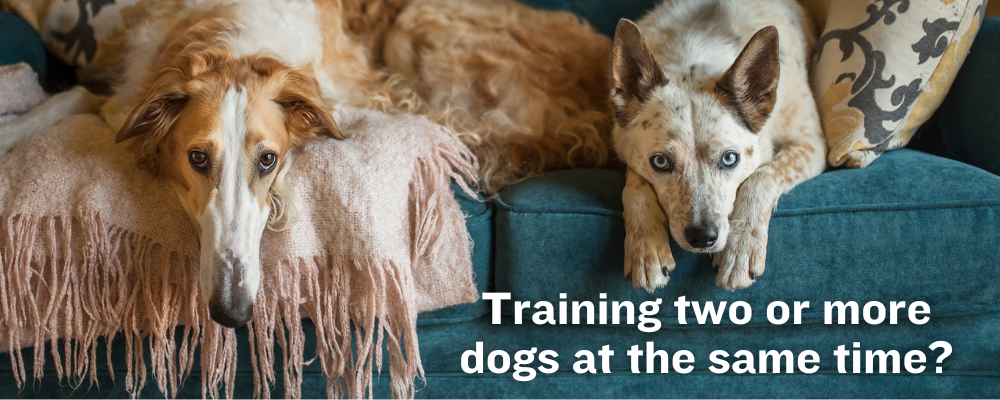A report issued in April 2019 by the University of Michigan National Poll on Healthy Aging cited reasons that seniors ages 50 to 80 liked having pets. Fifty-five percent of the seniors polled said they had a pet. Of those, 68 percent had dogs. And German Shepherds are the second most popular dog breed in the US for good reasons – they are intelligent, loyal, protective, and affectionate. Are GSDs good for Grandma or Grandpa?
Considering the high energy level of German Shepherds, they can only be a good companion for seniors who can accommodate at least 1 hour of moderate daily exercise and commit it for 12-15 years. It would be ideal if the senior has previous experience of owning and training a GSD before.
Whether you’re a senior looking for a four-legged companion, or you are trying to help your parents or grandparents to find the perfect pet, we’ve made this guide to help you make the most educated decision.
The Pros of Owning a German Shepherd for Seniors
First thing first, why is it a good idea to get a dog for seniors? Here are four common advantages of owning a dog:
1. Dogs help seniors to ease pain
Research shows that being in the presence of a dog and petting them can help to distract from pain, provide comfort, and reduce the feelings of isolation that often results from chronic pain
Pet owners who look into a dog’s eyes for at least five minutes get a boost of the oxytocin hormone in the brain, which makes them feel good, the journal Science reported.
2. Dogs help seniors stick to a routine
More than half (62%) of the surveyed seniors said that caring for their critters helped them keep a routine.
Dogs also help owners to get up each morning to see to their needs, stay active in the day, and go to bed at a similar time each night. This routine further helps people to fall asleep easier and has a positive effect on all areas of life, from home to work.
And this provides them a sense of purpose especially for those seniors who live alone.
So staying on top of feeding, walking, grooming and playing with a pet can help fill those empty hours and keep the mind sharp.
3. Dogs make seniors more sociable
Loneliness can be hazardous to health. As a matter of fact, isolation raises the risk of heart disease by 29% and stroke by 32%.
Pets have been linked with a decrease in depression and loneliness, as well.
Pets also benefit their owners by making it easier to meet new friends, as well as enhance social opportunities in the community.
No wonder 65% of the aging pet owners in a survey claimed that their animals connected them with other people.
4. Dogs keep seniors active and healthy
Seniors aged 65 and older should get at least 2.5 hours of moderate exercise (such as walking) every week, or about 30 minutes on most days of the week.
Dogs can help them to be more physically active, from the essential dog-walking to daily care such as playing, feeding, cleaning or grooming.
Needless to say, these activities will demand seniors for more frequent moderate exercise, as well as lower BMI, blood pressure, and fewer doctor visits.
The Cons of Owning a German Shepherd (or Any Dog for Anyone)
Like anything else in life, there is always the flip side. Everybody is different and every dog is different as well. Do talk them through with the senior as they may need help to get resources and still be able to enjoy the great experience of having a dog.
1. German Shepherds can be physically demanding
That extra exercise a person gets from walking a dog or playing with their pet also comes with some risks.
And 6% of seniors in the National Poll on Healthy Aging reported that their pets caused them to fall or otherwise injure themselves.
So seniors with limited mobility may want to adopt a smaller dog, over a large dog with high energy that needs to be walked for at least 1 hour a day.
2. German Shepherds can get expensive (especially when they get older)

The cost of dog-keeping varies considerably depending on your German Shepherd (including size, age and overall health), the quality of supplies and equipment, and even where you live.
The following numbers should give you an idea of what to expect:
For a german shepherd puppy in her first year:
- Veterinary care, including general care and laboratory tests: $100 to $200
- Immunizations: $100 to $200
- Spaying/neutering: $100 to $300
- Internal and external parasite treatment and control: $100 to $150
- Food: $300 to $500
- Miscellaneous expenses including crate, collar, leash, bowls, toys, grooming supplies and training: $500 to $1000
Total: $1,100 to $2,350 for the first year only.
For an adult dog, the annual costs could involve:
- Veterinary care, including general care and laboratory tests: $100 to $200
- Immunizations: $100 to $200
- Internal and external parasite treatment and control: $100 to $150
- Food: $500 to $1,000
- Miscellaneous expenses: $500 to $1000
Total: $1300 to $2550 per year onwards.
The number does not include illness, injuries, or emergencies, which can cost up to $3,000 per treatment. (Source: Emergency Vets USA)
Things to Consider Before Getting a German Shepherd for Senior People
Anyone can enjoy the many advantages of dog ownership at any age, but it’s important to find the right pet for the right owner, to match his/her lifestyle.
Also read: Are German Shepherds Good for First-Time Owners?
Here are some factors to consider before getting a German Shepherd for senior people:
Energy level: German Shepherds are originally a working breed and they require more exercise than other dogs. If a senior is fairly active or can walk a dog for at least 1 hour a day, regardless of the weather conditions, he/she may be able to handle a German Shepherd.
Young GSDs are generally more active than adult GSD (3 years or older). They need lots of physical and mental exercise, such as playtime and training.
If a senior has mobility issues, he/she might want to choose an older dog that preferably has some basic training done and is less physically demanding.
Temperament: Dogs’ temperaments are governed by the genes they are born with. German Shepherds are well-known for their loyalty, protectiveness, and affection towards their owners.
While any dog can be raised to be friendly, GSD has a strong protective instinct and is usually aloof to strangers or intruders. This trait makes them perfect guard dogs for seniors living alone.
But keep in mind that every animal has a unique personality. Try to know as much as you can about a potential pet you are considering in order to know what they like or don’t like. (e.g. other animals)
Size: If you google “best dogs for seniors”, you will not be surprised to find lists containing mostly lapdogs that are smaller in size and are easier to keep under control.
German Shepherds rarely find their way on these lists.
If a senior is living in condos, apartments, or care facilities, a large dog like GSD may not be ideal.
Age: Adult dogs may be better suited for seniors than puppies that are super active and tend to chew and nip. (Most dogs are considered to be “seniors” when they reach about age seven.) Mature dogs also tend to be calmer than young puppies.
Although there is no guarantee, chances are adult German Shepherds are house trained and have been socialized with people, other dogs or animals.
On top of that, German Shepherds have an average lifespan of 12 years, depending on the location, diet, activity level, and lifestyle of their owners. Adopting an older dog means he/she will be less likely to outlive the senior owner.
Grooming needs: German Shepherds have a double coat of medium length. Not only will GSDs shed day in day out, but they also lose all their undercoat twice a year (in spring and fall).
Apart from regular brushing, anyone living with a German Shepherd should equip themselves with a powerful vacuum and use it on a daily basis to keep the house clean from furballs.
Again, if a senior has mobility issues, the year-round shedding may get out of hand (and pile up) if he/she has difficulty using a vacuum, which is rather physically demanding for some people.
Questions to ask seniors before owning a German Shepherd
Now that we have covered some of the basic pros and cons of owning a pet, it is time to think about some questions before making the decision to own a pet. These are difficult questions, but a responsible pet owner should be aware of them.
Talk with the senior citizen. When choosing a dog for them, it is important to understand what he/she wants in a dog. Discuss with the senior what he/her ideal dog will be like, what they think they can do physically in relation to dog care, and if they have any previous experience in owning a dog.
Also read: Before Getting a German Shepherd: 10 Questions To Ask Yourself
Most importantly, ask them if they have any reservations or concerns about getting a big dog like a German Shepherd.
- Are you able to accommodate a dog in your dwelling?
A big dog like a German Shepherd will need some space inside the house. And senior dogs may have difficulty with stairs. Are you able to make these arrangements in your dwelling?
If the senior citizen is living in a care facility, such as assisted living, there may be restrictions limiting the size of dogs allowed in the facility. Some may not even allow ownership of dogs inside the facility. So make sure you check beforehand. - Do you want to spend at least 1 hour walking your dog every day?
You need to consider the senior citizen’s physical strength and agility. A senior citizen that is active and mobile can probably handle a German Shepherd that needs daily walks and playtime.
However, if the senior citizen does not have a lot of strength and cannot walk very far, you will need to find a dog that will not overwhelm them physically and can get its exercise inside the house. - Are you able to care for a pet?
Dogs are like children, they will always need to depend on you. This will include feeding, grooming, playing, and cleaning, etc. - What is the age of a dog you are interested in owning?
Young dogs require more attention and training, older dogs require care and accommodation. German Shepherd can live up to 12 to 15 years. Is this a commitment you can commit to? - Do you travel a lot?
If you are away for some time, you will need to find someone to watch your pet. Or send your dog to a boarding kennel. - Do you have someone to home your pet if you could no longer care for your pet?
It is possible that the dog will outlive their senior citizen owner. Make sure there is a plan in place for who (friends, family or neighbors) will care for the dog so that the dog does not end up homeless or being cared for by someone who does not want a dog.
- Can you afford a dog?
Every dog will need routine veterinary care such as blood tests, preventative medications such as heartworm tablets, vaccinations (especially for small dogs), and possibly even emergency treatment.
Older dogs, like humans, are also prone to common health issues and need special care or medication. It may be wise to look for insurance or pet health plans that can make the vet bills more affordable.

After all, adopting a dog is a big decision that comes with a lot of responsibilities. This means that you should make sure that the senior citizen is excited and ready to care for a dog. Getting a dog as a surprise for a senior citizen is not a good idea.
Also read: Male vs Female German Shepherds: How to Choose?
Where to Find a German Shepherd for a Senior
Up to this point, I hope you will help your senior to get a better idea of whether or not to get a German Shepherd. If the answer is yes, then the next step is to decide whether to buy a puppy or rescue/adopt an older dog.
Here are three main ways you can find a German Shepherd:
Buy: Find purebred German Shepherd puppies bred by reputable breeders from the American Kennel Club Market Place.
Rescue: Search for German Shepherds of any age from rescue organizations on our GSD rescue listing page.
Adopt: Mission K9 has retired military German Shepherds that are available for adoption.
Conclusion
There are many physical and emotional health benefits to owning a German Shepherd for senior people, but this breed also requires a lot of time and energy.
The key is finding the perfect match for the senior’s lifestyle and energy level — which may be an adult dog that comes with basic training and socialization and doesn’t require as much exercise as puppies.
Photo by Gustavo Fring from Pexels



